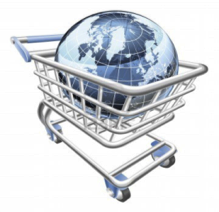
Reducing consumption 2013
How can we reduce consumption of greenhouse-emitting goods and services?
Reducing consumption can limit the greenhouse gases emitted as part of the production of goods and services. There are three primary ways consumption can be reduced: shifting the basket of goods and services consumed toward items with a lower emissions footprint; slowing the overall rate of economic growth; and slowing the rate of population growth. This contest seeks innovative and effective ways to reduce consumption. See more…
23
Proposals
FREE personalized HEAT Scores, HEAT Maps, Hot Spots, GHG estimates and waste-heat comparisons/competitions for homes, communities & cities
A âCool Foodâ rating system indicating climate and other impacts would empower consumers to choose climate-friendly foods.
Shape & activate a more attractive aspirational lifestyle that is innately sustainable for the emergent middle class in China.
To reinvent our cities from the bottom up to create deep carbon reduction, disaster resilient neighborhoods, and green economic development.
Minimizing 40 to 60% of a company’s footprint through better monitoring and control of its upstream supply chain
My goal is to create a global network of electric vehicle micro-manufacturers and designers to produce local open source electric vehicles.
We need a comprehensive strategy that does not rely on a single
entity, but involves as many people and organizations as possible.
Both Individuals & teams will compete using techniques requiring the least energy to complete challenges highlighting normal daily activity.
Sustainably, cost effectively and efficiently selling solar lights at the price of kerosene thereby reducing consumption of kerosene
Create hydrogen from water applying the right temperature, the right way.
To expand the use of stationary workout bicycles that generate electricity in college/university gyms across America
Frowns use more energy than smiles. Science interfaces our efficient bodies through frowns. When this tech makes us smile, the result is..?
Institute a product labeling program for appliances and electronics describing material contents, their sources and its recyleability.
Report and disclose embodied energy in all products from food to building materials using a familiar human-scale unit - the calorie.
Mitigate climate change by a rapid reduction of the short lived climate pollutants by advocating for less meat consumption globally.
Households represent the end source of consumerism, where food and other resources are waste. What if they were channelled to be resources?
Create shopping transparency on the longevity of goods to foster long-lasting goods and ban planned obsolescence
Develope a 'High Carbon Economy' by converting GHG emissions into raw materials, like Carbon & use them to create Green Goods & Services.
UV-sensors can be installed in showers to determine the quality of water, thus, divert clean water to storage tanks for re-use.
Ideating on the recently concluded Accenture Sustainability 24 Webinar,
http://wp.me/p1xbzq-16I
The mission of Move Your Green is to facilitate people's access to a sustainable world, involving green companies worldwide.